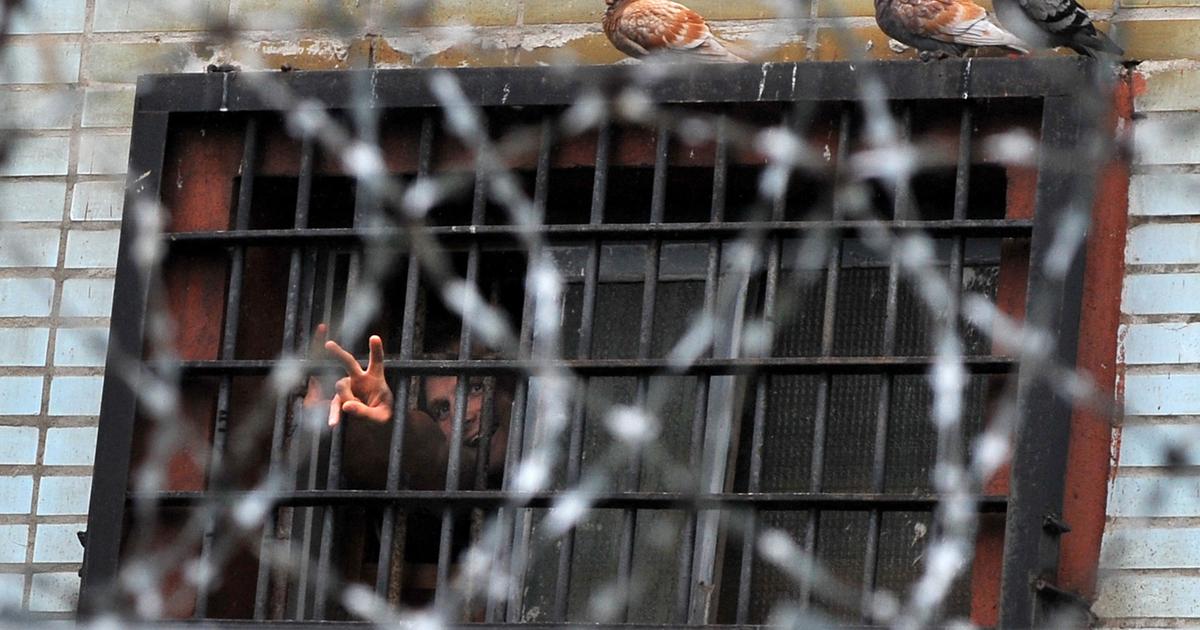Clashes broke out across the country between protesters and security forces on Monday evening in Belarus
Photo: Valery Sharifulin / imago images / ITAR-TASSDuring the protests against the presidential election in Belarus there are apparently still massive restrictions on the Internet. The non-governmental organization "NetBlocks" showed on a real-time map that there were network disruptions throughout the country even the day after the election. The problem still existed on Monday evening, wrote the organization, which technically analyzed the Internet blockades using network data. Government critics assume that government agencies are responsible for the network disruptions.
The disruptions affect social media services such as YouTube, Instagram, Twitter, Facebook, Viber, the Russian Facebook alternative Vkontakte and the messenger service Telegram, according to an open letter to several United Nations special rapporteurs, the ten Belarusian non-governmental organizations have written. The groups called on the UN rapporteurs to contact the government of President Lukashenko to ask them to end the network blocking.
The short message service Twitter has confirmed that it has been hit by network blocks in Belarus. The company announced on Monday evening German time that its own service was currently being blocked and throttled in Belarus. "Internet blocking violates fundamental human rights and contravenes the principles of the open Internet," the company wrote in a tweet.
According to "NetBlocks", the network disruptions affect both cellular communications and cable connections. Apparently, the network is not always completely blocked: In some cases it is only a matter of throttling or blocking that affect individual services.
"This revolution is happening offline," commented journalist Hanna Liubakova on the network blocking on Twitter. Your internet access in Minsk was down on Monday evening at 7 a.m., Liubakova said.
A typical means of bypassing network barriers are so-called VPN services. This redirects connections in such a way that certain blocking techniques are ineffective. The non-governmental organization "Access Now" reports, however, that popular VPN services in Belarus have also been affected by network disruptions since Sunday evening.
Journalist Liubakova also reported problems with various VPN services. On Monday evening, however, she also announced via Twitter that she had found another way to continue to be connected to the network despite the disruptions.
Lukashenko blames foreign countries
According to the tech magazine "Wired", President Lukashenko holds foreign bodies responsible for the network blocking. Belarusian authorities spoke of alleged DDoS attacks. In the event of such hacker attacks, an artificially generated mass of requests can temporarily bring the network to its knees. However, such attacks are common on individual websites, while in Belarus the entire Internet infrastructure appears to be affected. "NetBlocks" boss Alp Toker told "Wired" that there was no evidence of such a DDoS attack. The large Belarusian mobile operator A1 only made general reasons beyond the company's control for the network problems in a tweet on Sunday.
Alp Toker said the blocking seems to stem from blockages at the basic network level. A finer filter system against individual applications, as has been observed with network blocking in other countries, does not seem to be used in Belarus so far.
Both mobile telephony and Internet connections are offered by private companies in Belarus, but they run over a comparatively centralized infrastructure that seems to allow the authorities access at several points. For example, according to media reports, mobile phone providers use the infrastructure of the state-owned company beCloud for LTE.
Icon: The mirror














